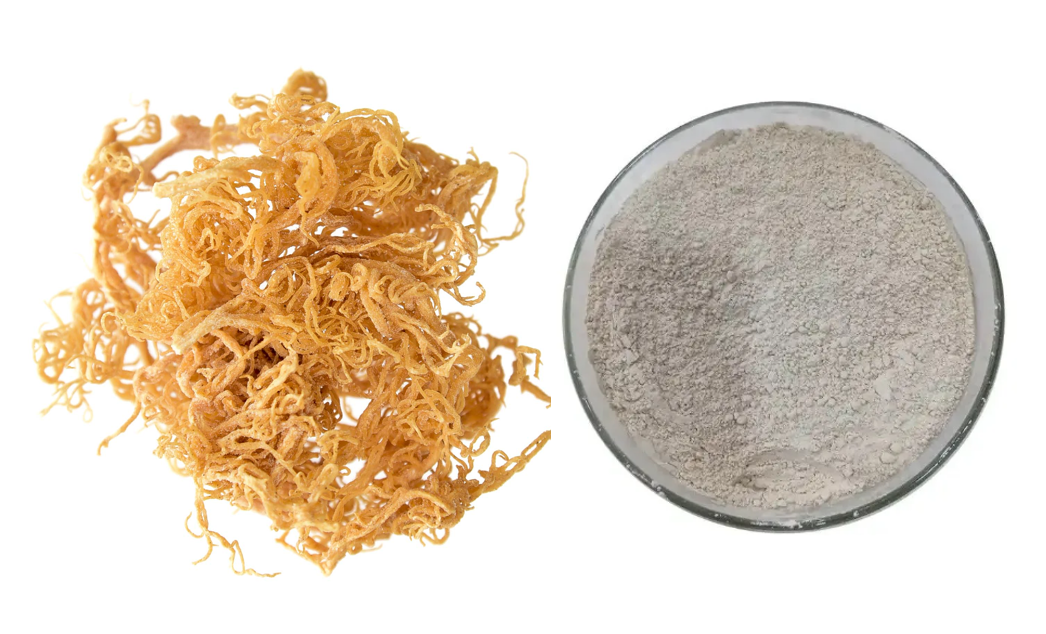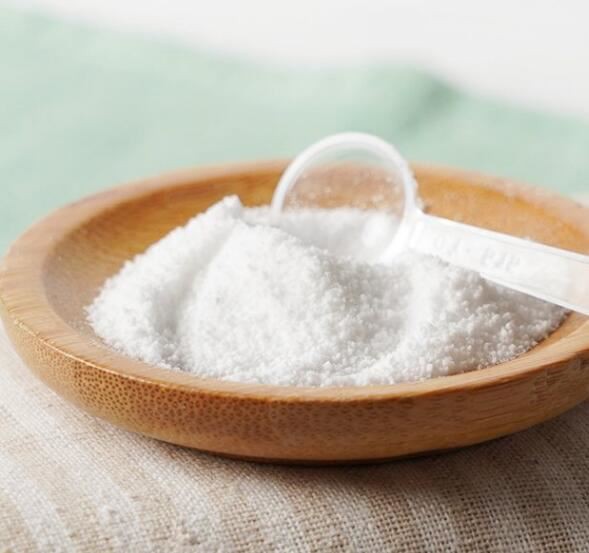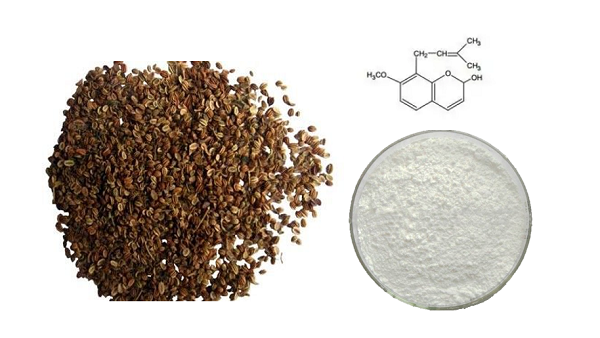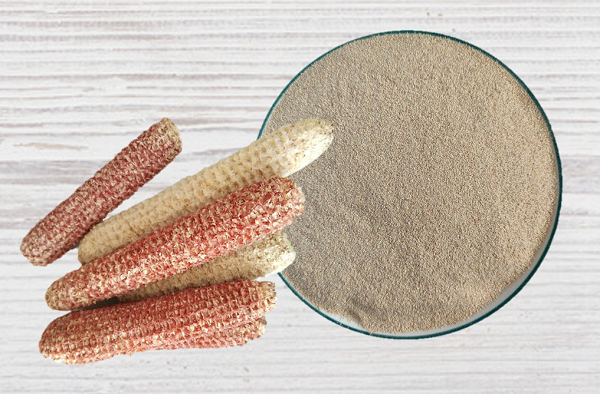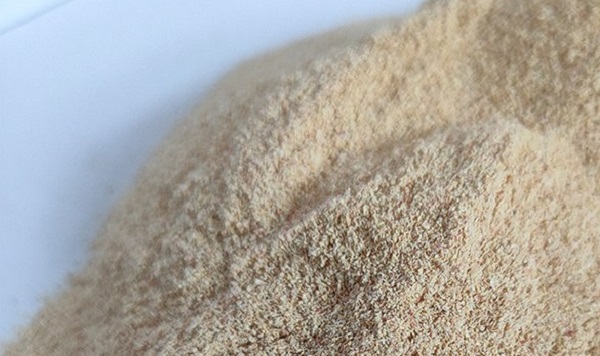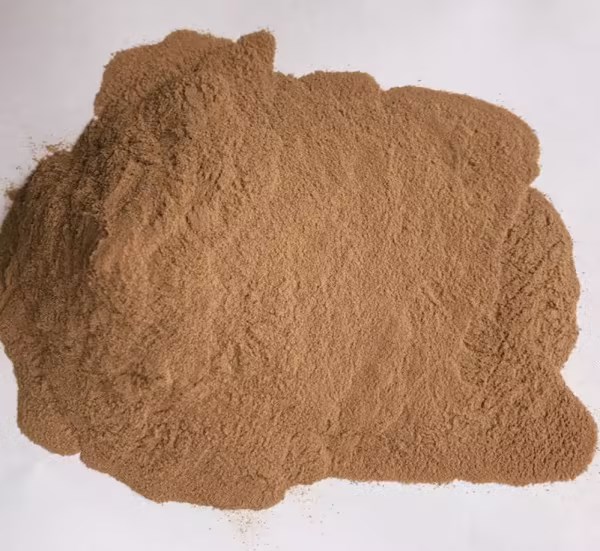Follow Us:
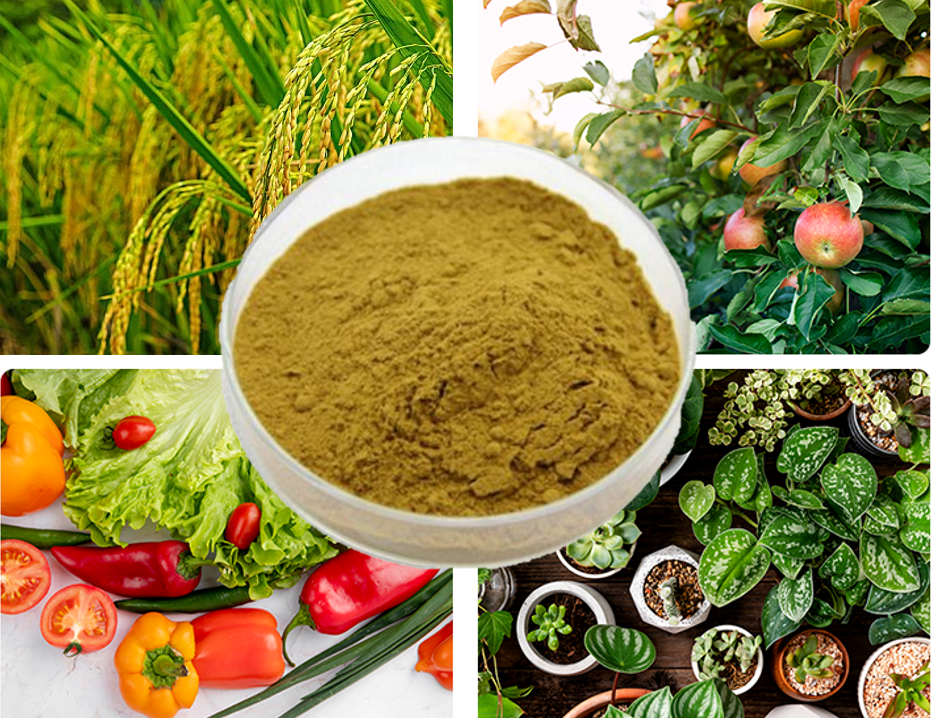
Why Agriculture Needs Rhubarb Extract Powder: Wholesale Price
The active compounds in rhubarb extract powder, particularly anthraquinones, tannins, and flavonoids, are believed to contribute to its various beneficial effects in agricultural settings.
How is Rhubarb Root Powder Manufactured?
The manufacturing process of rhubarb extract powder typically follows these steps:
1. Harvesting: Rhubarb roots are harvested when they reach maturity, usually during the late fall or early spring.
2. Drying: The roots are thoroughly cleaned and dried to remove moisture, often using low-temperature methods to preserve the active compounds.
3. Extraction: A solvent, such as ethanol or water, is used to extract the bioactive compounds from the rhubarb roots.
4. Concentration: The liquid extract is then concentrated into a powder form through a process like spray drying or freeze-drying.
5. Powdering: The concentrated extract is finely ground to produce a powder that can be easily mixed with water or other substances for agricultural applications.
6. Rhubarb Extract Powder Supplier COA
| Property | Specification |
| Botanical Name | Rheum spp. (Rhubarb) |
| Part of Plant Used | Root |
| Appearance | Fine, light brown to yellowish powder |
| Odor | Characteristic, earthy smell |
| Taste | Slightly bitter |
| Active Ingredients | Anthraquinones, Tannins, Flavonoids, Organic Acids |
| Extraction Solvent | Water/Ethanol (depending on the extraction method) |
| Drying Method | Spray-drying / Freeze-drying |
| Solubility | Soluble in water |
| Particle Size | 80-100 mesh (depending on supplier) |
| Moisture Content | ≤ 5% |
| Ash Content | ≤ 5% |
| Total Anthraquinones | ≥ 2% (Typically measured by HPLC or UV) |
| Heavy Metals | Lead (Pb) ≤ 0.1 ppm, Arsenic (As) ≤ 0.1 ppm |
| Pesticide Residue | Negative (within permissible limits) |
| Microbial Limits | Total Plate Count ≤ 1,000 cfu/g |
| Yeast and Mold ≤ 100 cfu/g | |
| E. Coli: Negative | |
| Salmonella: Negative | |
| Shelf Life | 2 years from the manufacturing date (when stored in a cool, dry place) |
| Storage Conditions | Store in a cool, dry place, away from sunlight and humidity |
| Packaging | 25 kg/drum or customized packaging |
| MOQ | 50 kg |
| Application | Agriculture |
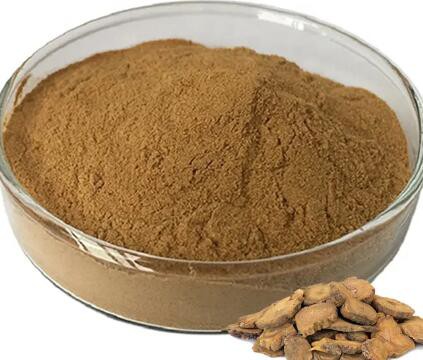
When it comes to bulk rhubarb extract powder for agriculture, quality and reliability are of utmost importance. Shaanxi Green Agriculture Co., Ltd., is proud to be a leading bulk raw material supplier, we are committed to providing high-quality rhubarb extract powder that meets the highest industry standards. We serve agents, distributors, traders, B2B customers, Amazon business supported, suitable for small businesses, one-on-one product inspection, supports COA requests.
Why Agriculture Needs Rhubarb Extract Powder?
Rhubarb extract powder, derived from the roots of the Rheum genus, has garnered significant attention for its potential agricultural uses. Known for its rich bioactive compounds, this natural product has applications ranging from pest management to promoting plant health.
What Are the Agricultural Cases of Rhubarb Extract Powder?
These cases highlight rhubarb extract powder versatile applications in agriculture, focusing on its role as a natural herbicide, fungicide, insecticide, soil enhancer, and stress reliever. Its ability to provide eco-friendly and sustainable solutions for pest management, plant health, and soil fertility makes it an excellent addition to modern agricultural practices, including:
1.Natural Herbicide
Crops Affected: Vegetables, fruits, and ornamental plants.
Application: When diluted into a solution, rhubarb extract works as a natural herbicide to control weeds in crop fields. The anthraquinones in the rhubarb extract disrupt the germination process of certain weeds by inhibiting seedling growth.
Example
- Field Use: Farmers apply rhubarb extract to areas with problematic weeds like broadleaf species or grass weeds, especially in organic farming where chemical herbicides are restricted.
- Effectiveness: The herbicide effect is typically stronger on young weeds or seedlings. Spraying it directly onto weed foliage inhibits photosynthesis and growth.
- Benefit: Rhubarb extract can help reduce competition for nutrients and water without harming surrounding crops or the environment, providing a sustainable alternative to chemical herbicides.
2.Natural Fungicide
Crops Affected: Grapes, tomatoes, cucumbers, strawberries, and other fruit or vegetable crops susceptible to fungal diseases.
Application: Rhubarb extract acts as a natural fungicide by preventing the growth and spread of common fungal pathogens like powdery mildew, downy mildew, and gray mold (Botrytis). Its tannins and anthraquinones create a toxic environment for fungal spores and help enhance plant resistance to fungal infection.
Example
- Field Use: Apply diluted rhubarb extract as a foliar spray to crops susceptible to fungal infections, particularly during humid conditions that favor fungal growth. It can be used as a preventive measure or during the early stages of infection.
- Effectiveness: Rhubarb extract inhibits spore germination and prevents the colonization of the plant tissue by fungi. Reapplication may be required during high humidity or after rainfall to maintain protection.
- Benefit: Using rhubarb extract as a fungicide reduces the need for harmful chemical treatments, making it an excellent choice for organic farming systems. It also supports long-term soil health by preventing chemical residue buildup.
3.Insect Repellent and Insecticide
Crops Affected: Leafy greens (lettuce, spinach), brassicas (cabbage, broccoli), fruit trees (apple, peach), and many other crops vulnerable to insect pests.
Application: Rhubarb extract acts as a natural insecticide by repelling or killing common agricultural pests such as aphids, whiteflies, thrips, caterpillars, and beetles. The anthraquinones in rhubarb extract have an insect-repellent action, while other compounds in the extract may disrupt the nervous system of insects, leading to their death.
Example
- Field Use: Farmers can spray a diluted solution of rhubarb extract on crops at risk of insect infestations, such as leafy vegetables and fruit trees. Rhubarb extract is particularly useful in integrated pest management (IPM) systems, where it is part of a broader strategy to reduce pesticide use.
- Effectiveness: The insecticidal properties of rhubarb extract are particularly effective against pests that chew on plants or suck sap. It works by making the plant less palatable to insects, leading them to leave or die after feeding.
- Benefit: As a natural insecticide, rhubarb extract provides a safer, non-toxic alternative to synthetic chemicals, reducing pesticide residues on food crops and protecting beneficial insects like pollinators.
4.Soil Health Improvement
Crops Affected: All types of crops, especially those growing in stressed or nutrient-deficient soils.
Application: Rhubarb extract also is a soil conditioner, promoting the growth of beneficial soil microorganisms and improving soil fertility. The extract’s organic acids, tannins, and other bioactive compounds stimulate microbial activity in the soil, enhancing nutrient cycling and plant growth.
Example
- Field Use: Diluted rhubarb extract as a pre-plant treatment or as a foliar spray to enhance root development. It works by enriching the soil with beneficial microorganisms that can help plants access nutrients more effectively.
- Effectiveness: The extract can improve soil structure, water retention, and nutrient availability. This leads to healthier, more resilient plants.
- Benefit: Rhubarb extract as a soil enhancer can reduce dependency on synthetic fertilizers, promote soil health, and improve crop yields over time, making it ideal for sustainable farming practices.
5.Plant Stress Relief
Crops Affected: Crops in drought-prone or temperature-stressed environments (e.g., corn, wheat, rice, and various vegetables).
Application: Use rhubarb extract to enhance plant resilience to environmental stress, such as drought, high temperatures, or nutrient deficiencies. The antioxidants and other bioactive compounds in rhubarb extract help reduce oxidative stress in plants.
Example:
- Field Use: Spray rhubarb extract on crops experiencing environmental stress, especially in drought-prone areas. It helps plants manage water loss, maintain cell integrity, and improve overall stress resistance.
- Effectiveness: Rhubarb extract helps plants cope with water scarcity by improving their internal hydration and reducing cell damage from dehydration.
- Benefit: By using rhubarb extract to alleviate plant stress, farmers can improve crop survival rates and yields in challenging growing conditions, especially in organic or low-water-use farming systems.
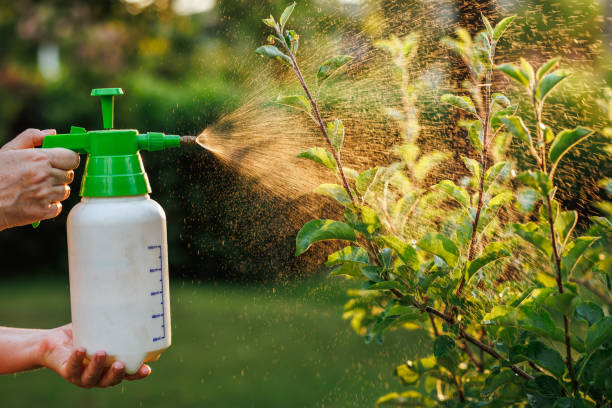
What Is the Recommended Dosage for Agriculture?
The recommended dosage of rhubarb root extract varies depending on the application and the specific agricultural needs. Typically:
- Pest and Disease Control: Dilute 1-2% rhubarb extract powder in water for foliar applications.
- Soil Treatment: Apply a 1-5% solution to the soil, adjusting based on crop type and soil condition.
- Growth Stimulant: Use a 0.5-1% concentration to promote plant growth.
Farmers should consult with agricultural experts to determine the most effective dosage based on their specific crops and environmental conditions.
Is Rhubarb Extract Powder Safe for Agriculture?
YES, rhubarb extract powder is generally considered safe when used as directed in agricultural applications. However, it is essential to follow proper guidelines for use to ensure that it does not affect non-target species or the environment negatively. The powder is biodegradable and less toxic compared to synthetic chemicals, making it a safer option for integrated pest management and soil enrichment.
Contact Us for Wholesale Orders
Are you interested in rhubarb extract powder price? Contact our sales team today to discuss wholesale pricing, MOQ, and custom packaging shipping. We look forward to serving you!
Customer Feedback on Rhubarb Extract Powder from Our Agricultural Brand Manufacturer
1. An Agricultural Manufacturer ★★★★☆
“We have been using Rhubarb Extract Powder in our organic farm for the past six months. Its effectiveness in controlling pests without harmful chemicals is impressive. We primarily grow tomatoes and beans, and we’ve seen a noticeable improvement in both crop yield and disease resistance. However, we do recommend fine-tuning the concentration for local conditions. The powder also enhances soil health, which is crucial for our organic farming goals. Overall, it’s an excellent product for sustainable agriculture.”
2. An Agricultural Distributor ★★★★★
“Rhubarb Extract Powder has been a game-changer for our vegetable farms here in Mexico. We deal with a variety of pests, especially aphids and fungal infections, and this extract has helped keep them under control naturally. It’s also easy to mix with other organic treatments. Our yields have improved by 15%, and our customers appreciate the eco-friendly approach. It’s also a great addition for promoting soil fertility. We highly recommend it to others in the agricultural sector.”
3. An Organic Farm Owner ★★★★☆
“As an organic farm in California, we’re always on the lookout for natural alternatives to chemical pesticides, and Rhubarb Extract Powder has delivered excellent results. We’ve used it for both pest control and as a growth stimulant for our lettuce and kale crops. The powder is easy to apply, and the reduction in insect damage is significant. The only downside is that we needed to experiment a little with dosages, but once we found the right concentration, the results were outstanding. It’s a must-have for any organic farm.”
4. An Agricultural Research Institute ★★★★★
“We’ve been conducting trials on Rhubarb Extract Powder for over a year in various agricultural settings, including vegetable and fruit crops. The results have exceeded our expectations. The powder has shown great potential as both a natural pesticide and a soil enhancer. We’ve observed a reduction in fungal diseases, and the powder appears to enhance the natural resistance of plants. It’s a fantastic alternative to traditional chemical treatments and fits perfectly with our sustainable farming initiatives. We highly recommend it to fellow agricultural researchers and farmers.”
Also See
- The Importance of High-Quality Lentinan in Agriculture
- Carvacrol and Thymol: Plant Pesticides in Agriculture
- Is Pyrethrin Stoxic in an Open Space
- Physcion: A Key Ingredient for Sustainable Farming
- Seaweed Extract for Foliar Spray-Agriculture and Gardening Complete Guide
- Is Matrine 98% Content a Priority for Agricultural Brand Owners
- Does Garlic Extract Good for Agricultural Crops
- Pure Capsaicin Benefits













